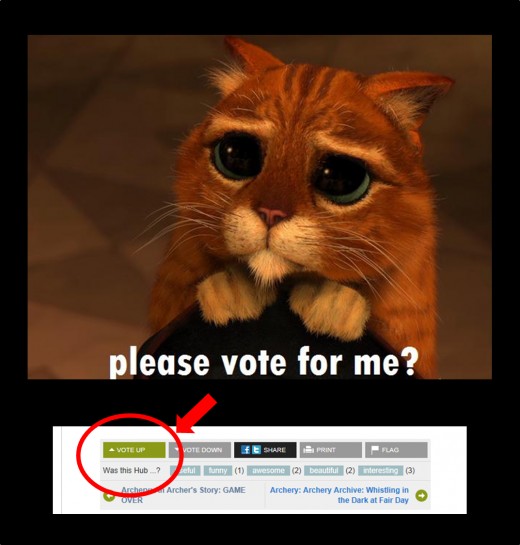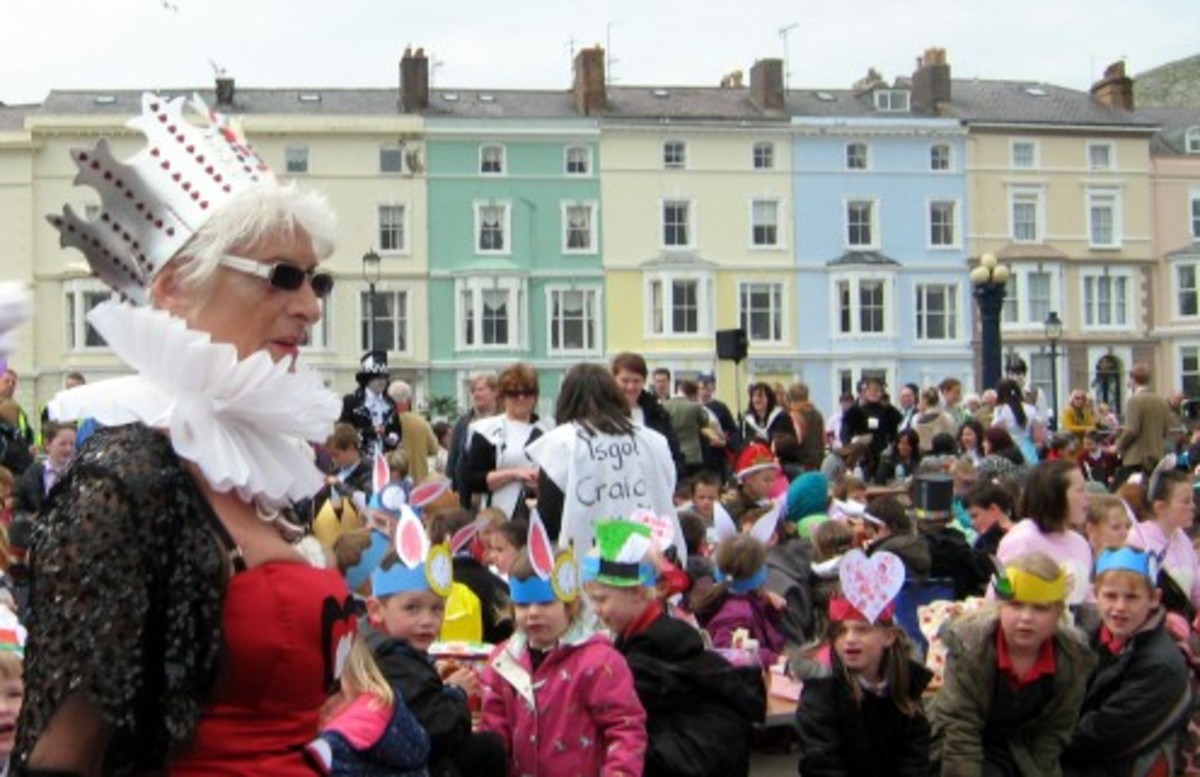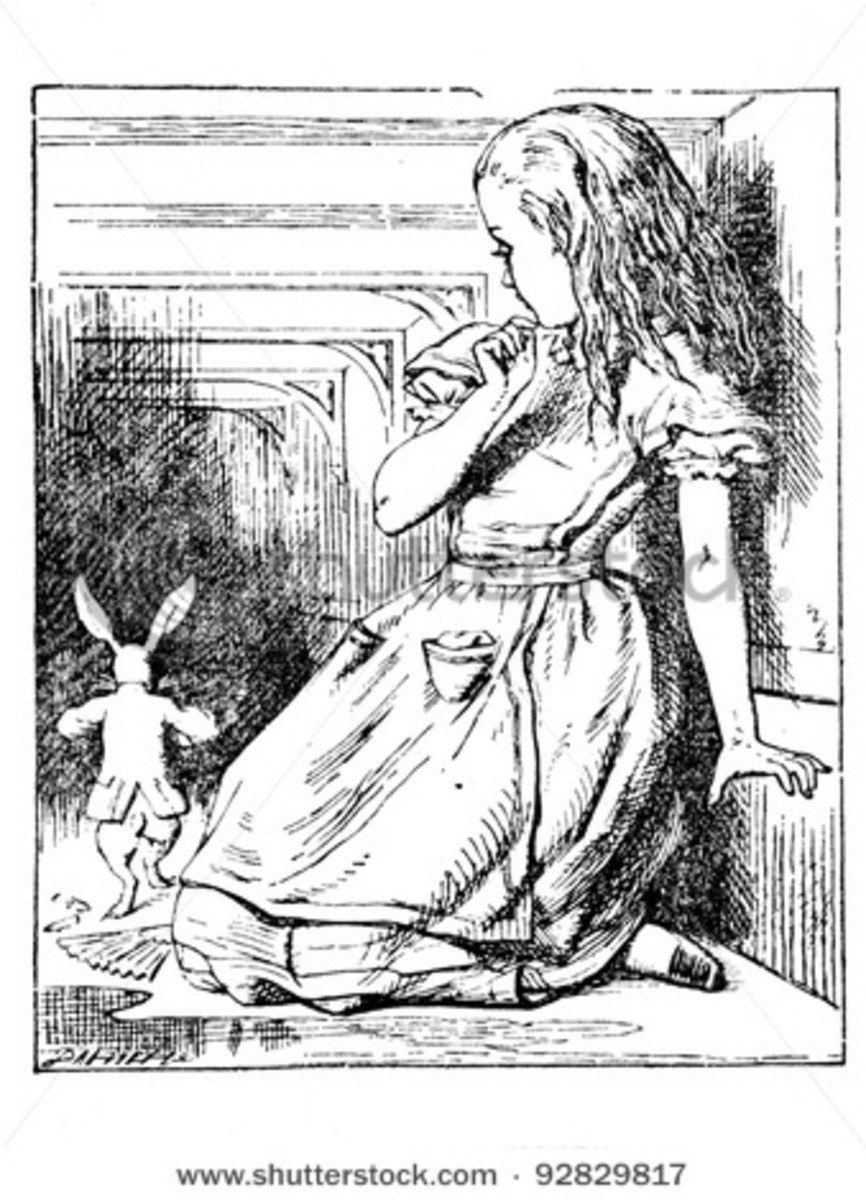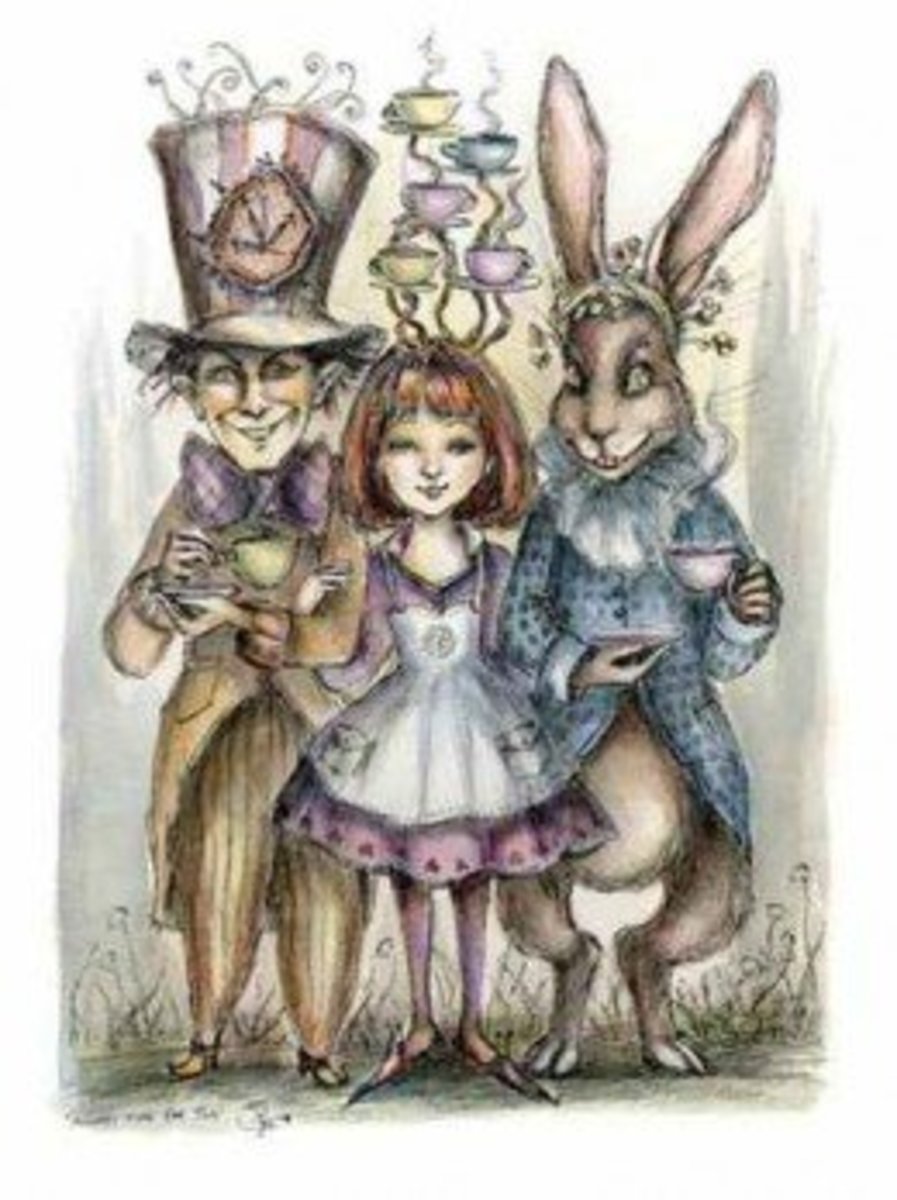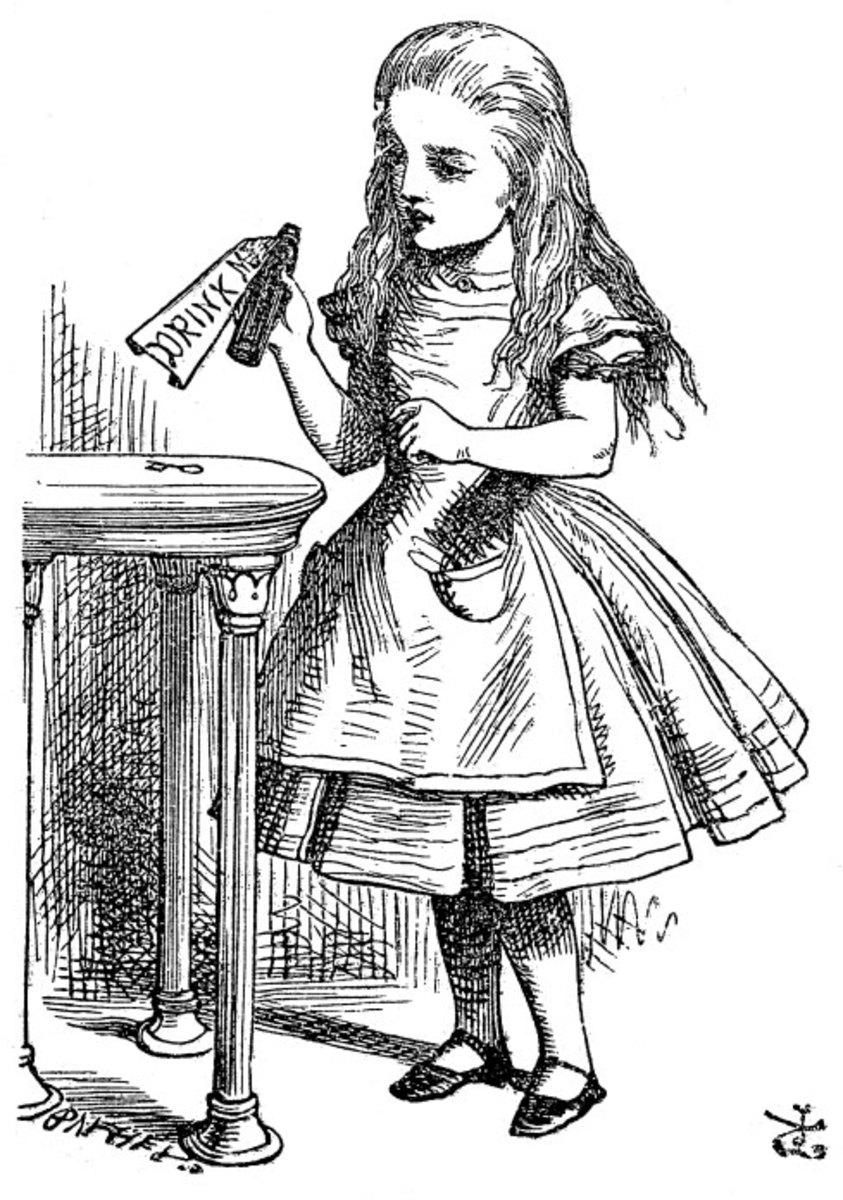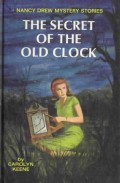Going Down the Rabbit Hole
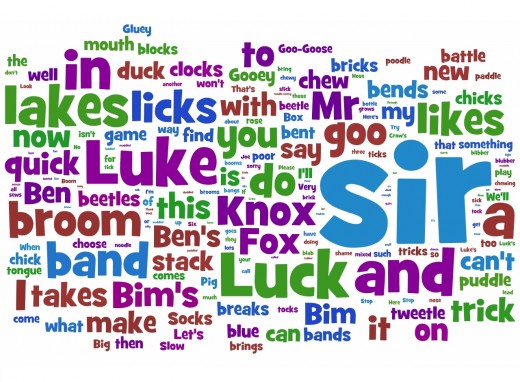
Fairytale
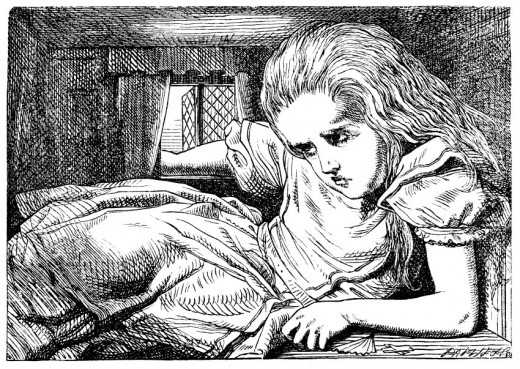
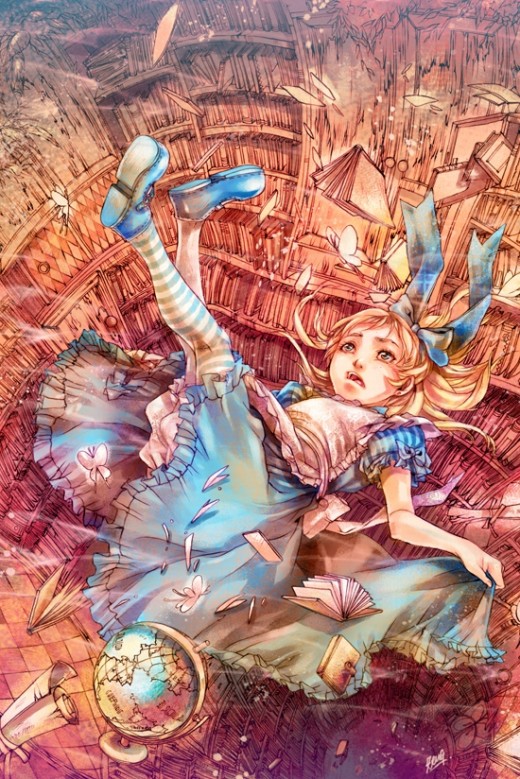
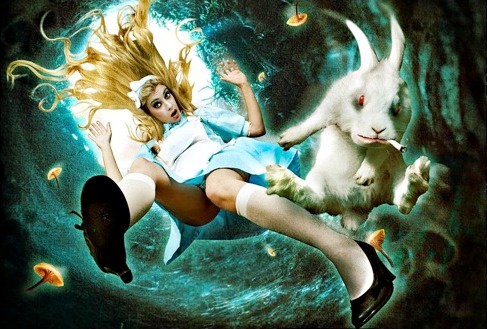
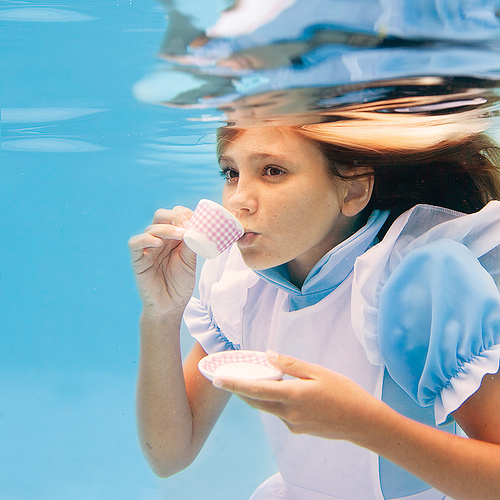
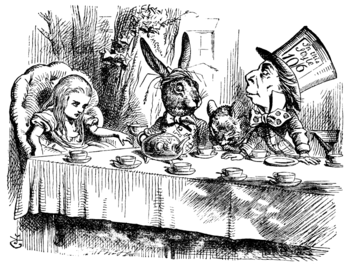
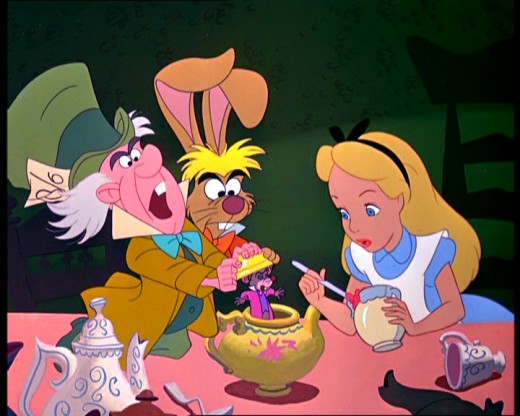
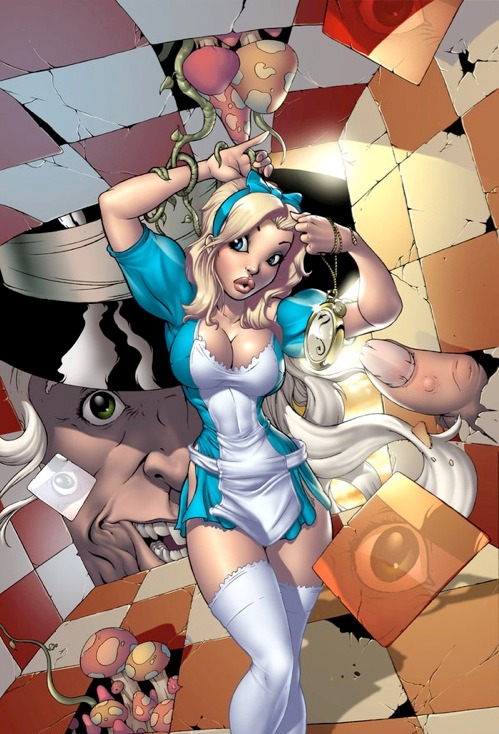
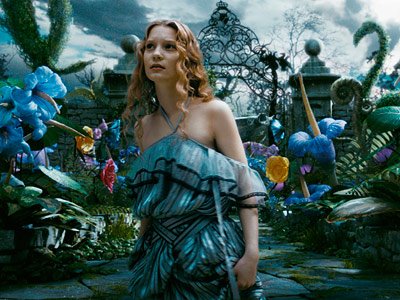
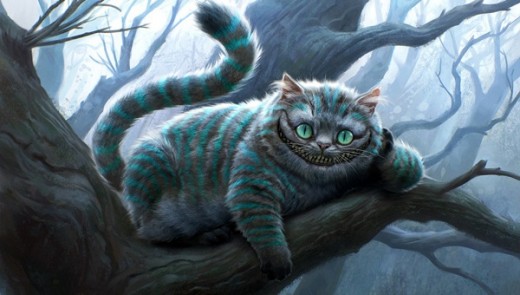
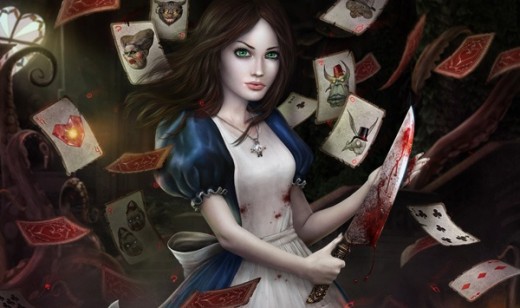
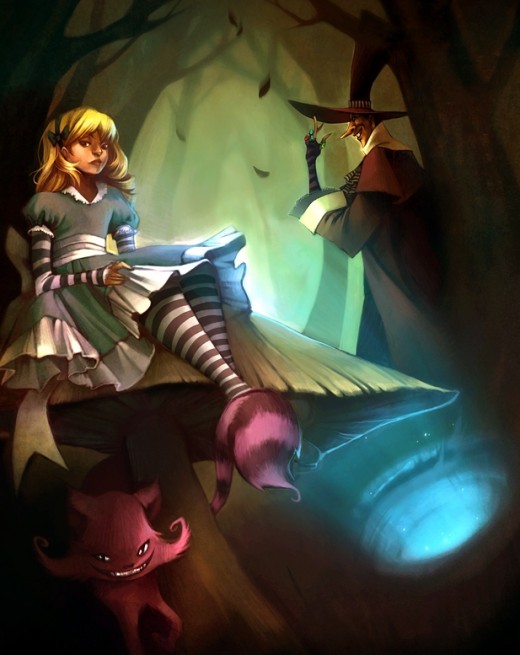
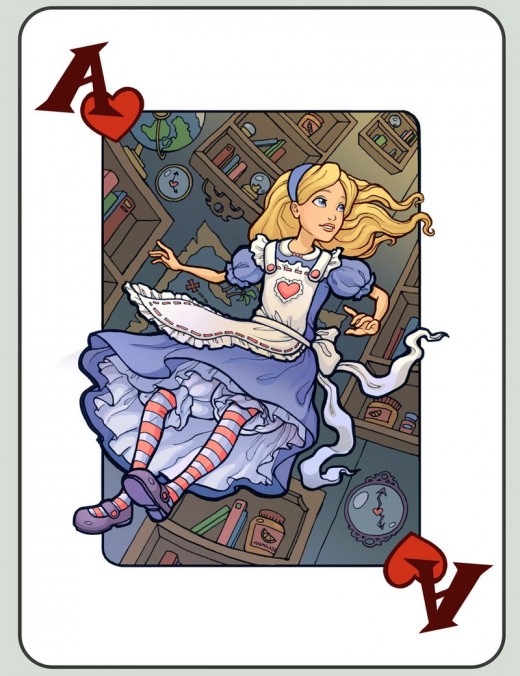
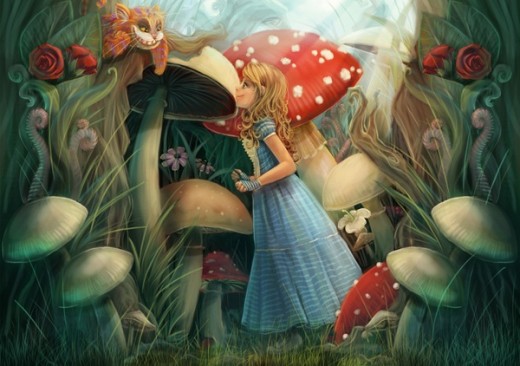
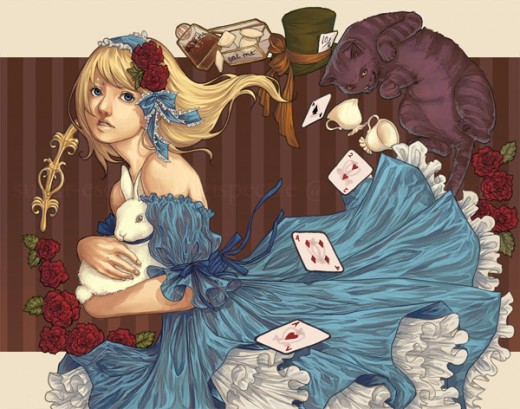
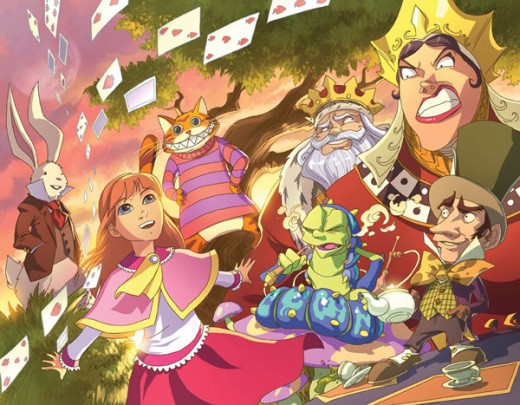
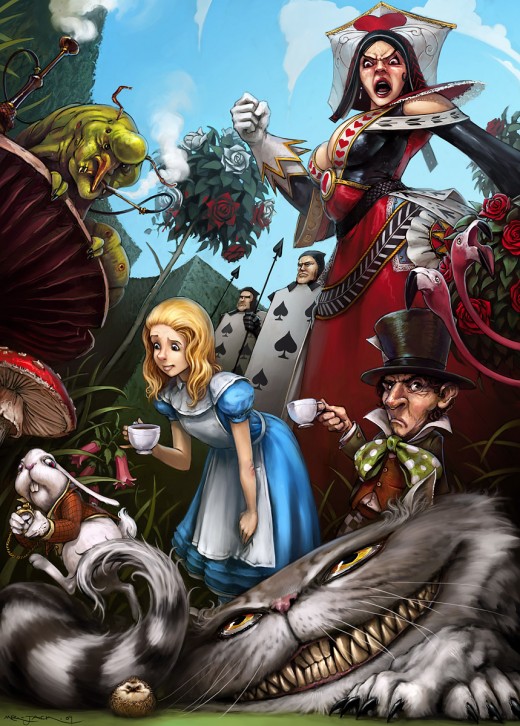
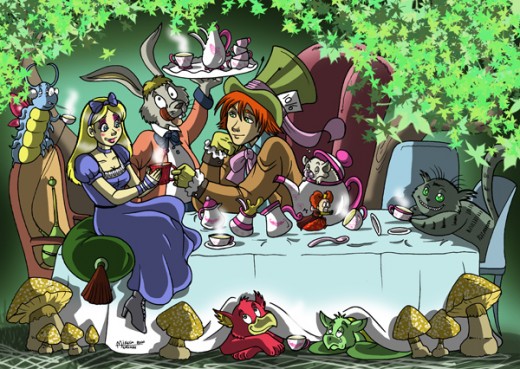
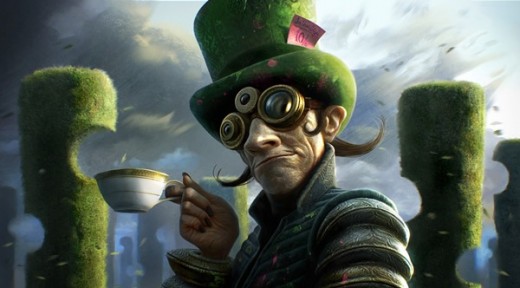
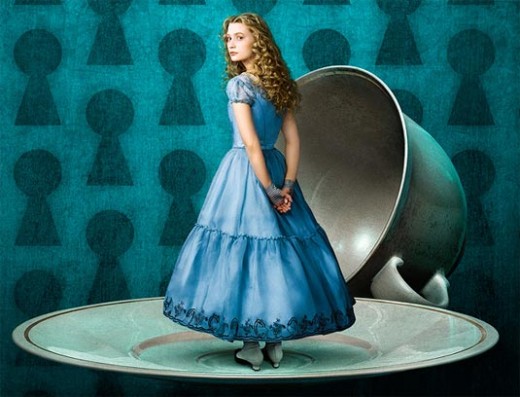
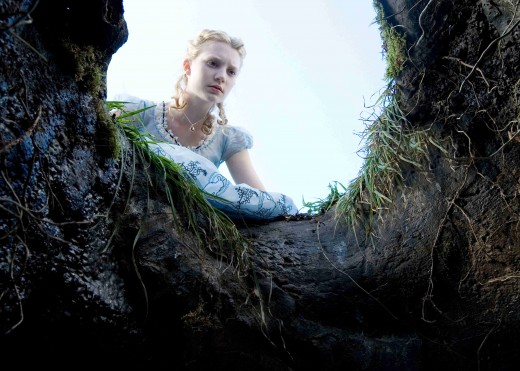
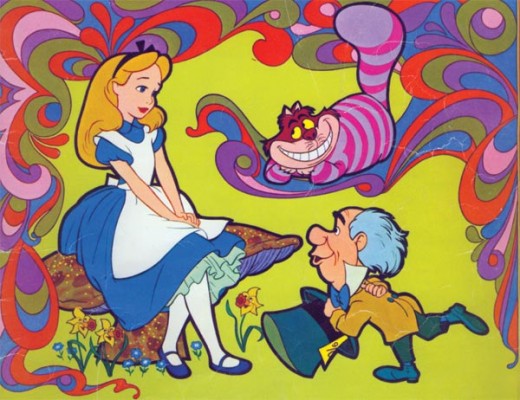
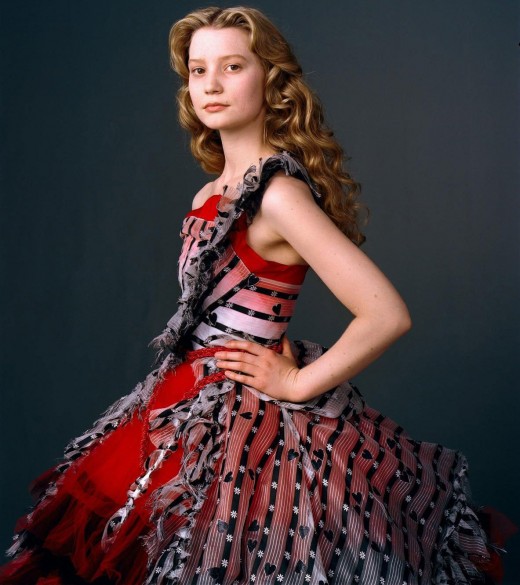
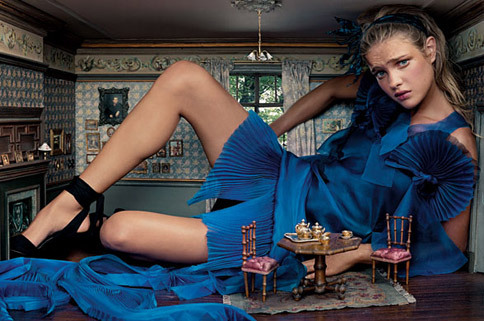
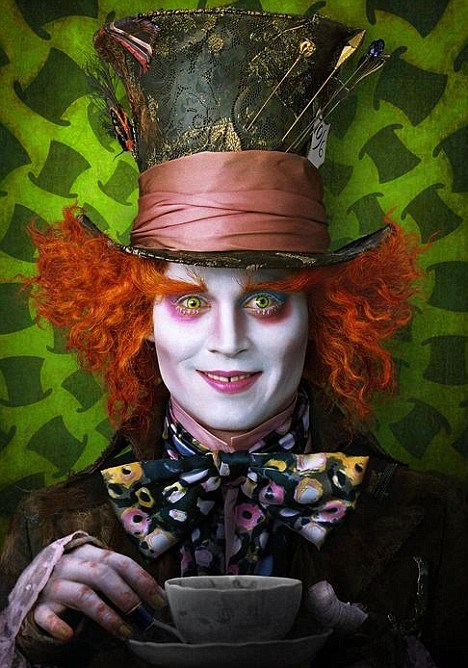
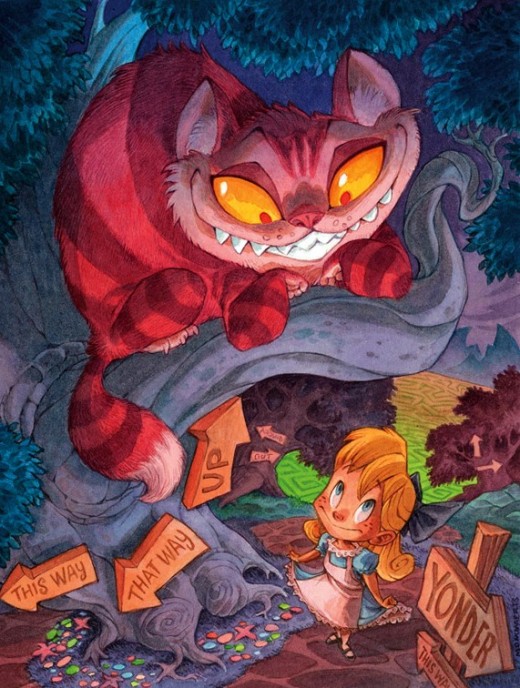
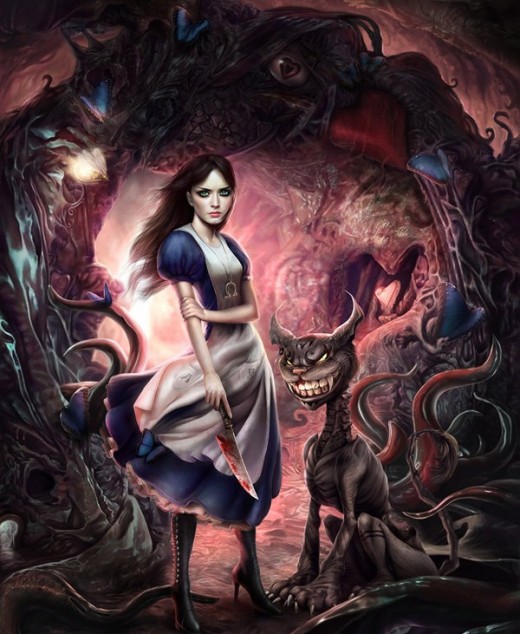
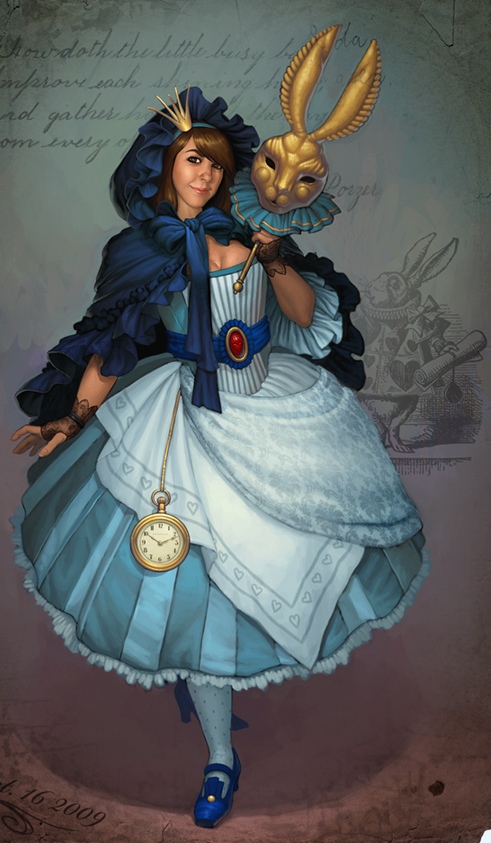
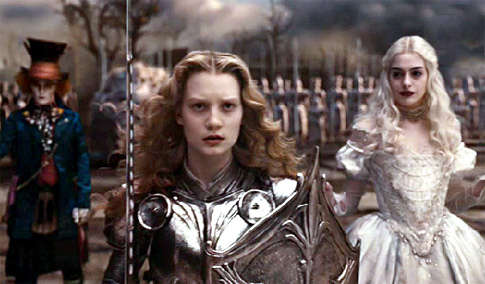
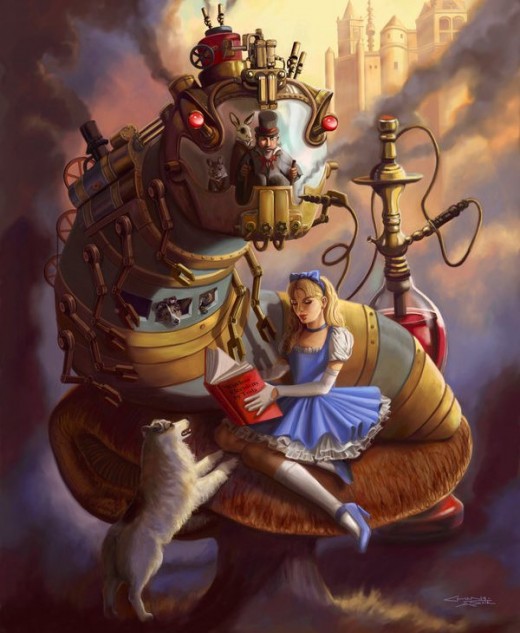
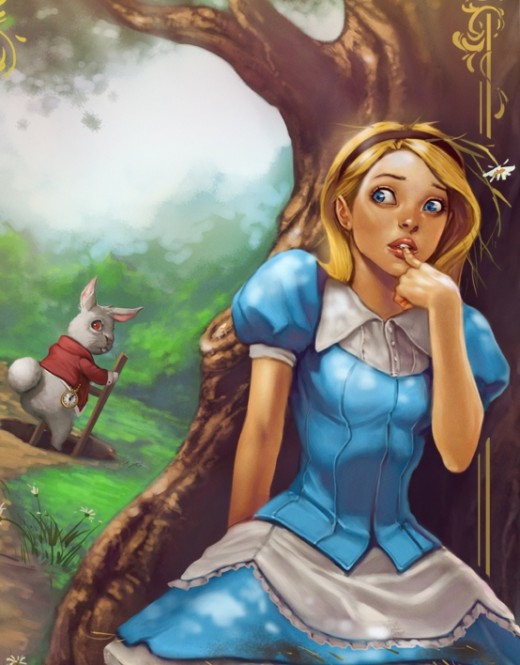
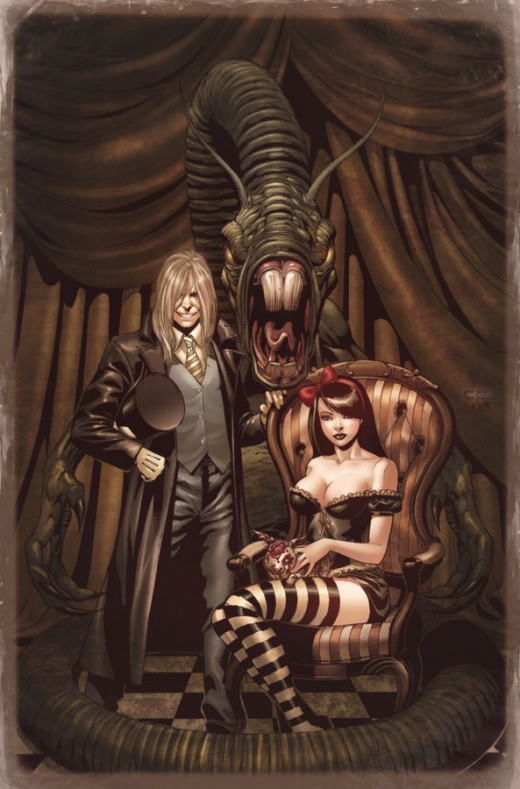
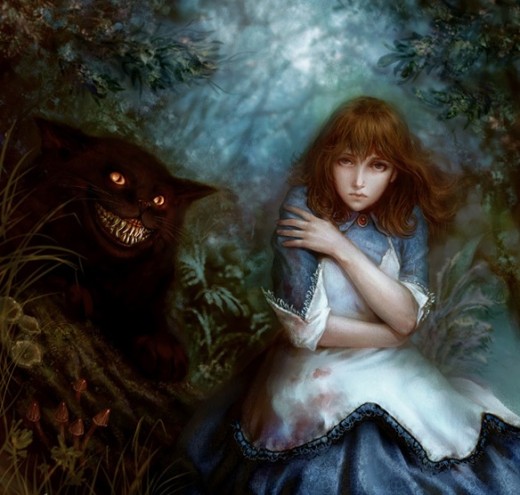
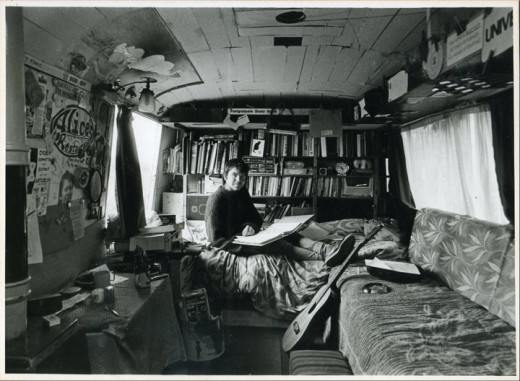
By Nils Visser
Let’s have a wee experiment shall we? It involves experiencing poetry and changes in your perceptions. Do me a favour. Retire from the world for five minutes. If the door is open, close it. If your phone is on turn it off. Basically for the next five minutes the world has a problem if it wants to access you, though I daresay it will keep on turning and functioning if it has to wait for your attention a wee while, to be quite honest, in the big picture you and I aren’t really that important. Anyhow, having shut the door and been thoroughly disillusioned about how special you are, or rather aren’t, sit down, pump up the volume on your PC or laptop and play the video posted above.
Now close your eyes for the next five minutes and just let the poem wash over you.
Child of the pure unclouded brow
And dreaming eyes of wonder!
Though time be fleet, and I and thou
Are half a life asunder,
Thy loving smile will surely hail
The love-gift of a fairy-tale.
I have not seen thy sunny face,
Nor heard thy silver laughter:
No thought of me shall find a place
In thy young life’s hereafter--
Enough that now thou wilt not fail
To listen to my fairy-tale.
A tale begun in other days,
When summer suns were glowing--
A simple chime, that served in time
The rhythm of our rowing--
Whose echoes live in memory yet,
Though envious years would say “forget”.
Come, hearken then, ere voice of dread,
With bitter tidings laden,
Shall summon to unwelcome bed
A melancholy maiden!
We are but older children, dear,
Who fret to find our bedtime near.
Without, the frost, the blinding snow,
The storm-wind’s moody madness--
Within, the firelight’s ruddy glow,
And childhood’s nest of gladness.
The magic words shall hold thee fast:
Thou shalt not heed the raving blast
And, though the shadow of a sigh
May tremble through the story,
For “happy summer days” gone by,
And vanish’d summer glory--
It shall not touch with breath of bale,
The pleasance of our fairy-tale.
What did you think? Of course, poetry is highly personal, there’s the chance you thought it was utter rubbish and not worth your while in which case I owe you five minutes of your life. Generally speaking, however, most people would sum up a positive experience, soft soothing music to calm the soul and the gentle intonation of the voices.
The imagery is mixed, two thirds of the way into the poem the pleasant associations invoked in the beginning are marred by harsh words such as: Envious, hearken, dread, bitter, summon, frost, blinding snow, moody madness and raving blast. However, and the poet even points this out in the last stanza (it shall not touch with breath of bale, the pleasance of our fairy-tale), the positive imagery outweighs the negative, calling upon calm and happy associations: Dreaming children, loving smiles, sunny faces, silver laughter, fairy tales, warm summer days, rowing on the water, the glow of a fire, a nest of gladness and magic words dominate.
Agreed? Happy? A bit less stressed too I hope. Well, if you liked the poem, or rather than your experience of it, allow me the following three actions (if you didn’t like it, just tag along). First of all, purely in an informative mode, I will now inform you that it was written by a presumed paedophile as a farewell to a child whose parents had forbidden further contact between the poet, an adult man, and the child, an eleven year old girl. Secondly, read the poem again but now with the hindsight of the jolly piece of knowledge I just imparted upon you. Thirdly, I’d like to ask you the question: has your appreciation of the poem changed in any way?
Reactions will be mixed. Some are able to separate the work of art from the artist, in the full knowledge that a considerable percentage of their bookshelves would have to be emptied if we started to remove the works of those who have offended law or moral sensibility. Others will froth at the mouth and denounce the work of art on the basis of the demons of its creator. The loony fringe don’t read proper books anyway. The cleverest folks will have noted the “presumed” and will want to know more before taking a stance, for if we were to denounce every creative spirit who’s been accused of this and that by envious Mundanes, ‘phonies’ as Holden Caulfield would call them, we’d have no artists left.
In this particular case, nothing was ever proven, the circumstantial evidence there is makes it more likely that the adult in question perceived a genuine friendship or mental connection with the child, rather than pursuing a sexual agenda.
None-the-less, I’ve heard people condemn the works of this particular artist based on the suspicion alone. I’ll not pass judgement on the man, but happily admit to being a great fan of the work that flowed from the pen of Charles Lutwidge Dodgson (Lewis Carroll) ever since I could read. Moreover, I’m not the only one, for all those condemning his work there are as many if not more avid fans. These two extremes are typical too, for books like Alice’s Adventures in Wonderland and Alice through the Looking Glass tend to draw responses that are either wildly ecstatic or harshly dismissive. I know few books that invoke such a divided response, moreover, I know few books where a dismissal of the artistic content raises my own bile. When we discussed this story in the class reading circle and some dismissed Alice’s Adventures in Wonderland as being the mad ramblings of a drug-addict and paedophile I started digging a trench for a machine gun emplacement. For one, to dismiss the content because a bunch of hippies hijacked the book in the sixties and because of unfounded and unlikely accusations with regard to the author’s sexual appetite seems ‘easy’, especially because every subsequent turn of the debate ended with the dismissal “It’s nonsense anyway” without any further shred of evidence that the book had actually been read. For two, I take rejections of this particular story fairly personal, as it turns out. In the case of many other books I can offer a counter argument or two and then just shrug. In the case of Alice I take offense and become reasonably passionate in defence of the story. Why?
Alice is one of my oldest friends. Having moved around quite a lot I don’t have many friends left from the time I was seven, to name an age. From perusing various commentaries on the book on the web, many fans recall having befriended Alice when they were quite young. Many also quite literally mention that they fell in love with Alice. This is somewhat unfortunate considering the controversy surrounding the author. However, before misleading associations are made, all of these did so when they were children themselves.
Is it possible to experience a sense of friendship with a literary character? Sure. Often we identify with them, are sometimes so intimately acquainted that we know their innermost thoughts and experience their adventures with them side by side. This creates ample basis for a friendship, albeit partially imaginary the moment you try to conduct a conversation outside of the story script, although even then you’d probably be able to create a reasonably realistic prediction of their likely comments based on what you know about their characteristics and reactions in certain situations. Of course, you’d need to hear voices in your head to be able to conduct such a conversation, and I’ve discovered before that its presumptuously subjective to assume everybody else hears voices in their heads as well. Moreover, it can also be risky, your friend being quite predictable might not really be a good preparation for real human interaction.
Is it possible to fall in love with a literary character? Crikey, just go ask Fitzwilliam Darcy. It’s the next step of friendship, so yes. Moreover, since it’s you yourself that is creating the mental image of the subject of your possible affection, you may well endow that image with all that you think is good and beautiful, so the likelihood that you’re going to be really keen on that image is quite high. Besides that, literature can provide an erotic stimulation far beyond plain graphic pictures of the business being done, probably because so much is left up to the imagination (remember The Lusty Young Smith?)
Anyhow, many people claim they have fallen in love with literary characters.
“Little Red Riding Hood was my first love. I felt that if I could have married Little Red Riding Hood, I should have known perfect bliss” said a chap called Charles Dickens.
In his work Stitches ( copy and paste into a new Url: http://vimeo.com/6505850), David Small wrote:
“I was six. I had fallen in love with Alice. Especially with her long blond hair. I thought it must be her hair that gave Alice the magic ability to travel to a land of talking animals, singing flowers and dancing teapots. I wanted to go there immediately.”
I myself have been deeply smitten with both Red Riding Hood and Alice since youth and was glad to find I was in good company when I ran into these citations.
A Hubber by the name of Mega1 wrote the following:
“I loved the Alice In Wonderland story the moment I met it. I think I was eight when Alice fell down that rabbit hole and started floating among the flotsam and jetsam of her memories….I fell in love with Alice, with falling, with imagination, with dizziness and zaniness.” To this she adds an interesting observation: “….it helped me deal with some particularly nasty nightmares I´d been having at the time-this story was like an enlightened therapist, urging me to pay attention to the stuff my night-time brain invented, and to realize that others had weirdness in their minds that was just as kooky as mine. “
Being a vivid multi-stereo full Technicolour High Definition dreamer, I find that interesting. Alice´s adventures very much resemble the illogical pattern of a dream for a long time, until she figures out that she is in control of events she´s very much swept along a series of scenes which are truly “curiouser and curiouser“, just like a dream.
Very often this is what offends dislikers of the book who actually read it, rather than dismissing it because of gossip about its author. It makes no sense, there´s no logic. They spend more time than Alice trying to figure it out, trying to shape Wonderland into something that meets their expectations.
That dreamscape element is the very one that also appeals to fans of the book. So, there´s a caterpillar sitting on a mushroom smoking a hookah. Let´s not ask how he got there and where he bought his hookah, let alone where he gained his speaking skills: Let´s find out what he´s got to say, if anything because speech, like setting, often seems to have little meaning in Wonderland.
It would be interesting to conduct research into how comfortable the Likers and Dislikers of Wonderland are with the dreamscape of their own imagination. I suspect Dislikers to be linear thinkers and Likers to be much more associative in their thought patterns, and therefore more flexible with the unexpected and weird. In this, my personal interpretation of Grace Slick´s “Feed your head” has long been dissociated with the intake of drugs, feeding your head can be done in many different ways such as exposing it to the abstract and absurd to keep things from getting rusty up there.
In short, perhaps the Likers are a little bit crazy? Falling in love with characters who inhabit the dream world of Alice? Decorating rooms in their houses or corners of their gardens in Wonderland themes? Hosting Mad Tea Parties, having their engagement photographs done in a Wonderland theme, having the wedding itself in a Wonderland theme? Alice has become an iconic part of pop-culture, one only has to Google images of Alice in Wonderland to run into the oddest interpretations and most far-fetched reincarnations. Tens of thousands of crazy people. I greatly admire the makers of the recent Alice in Wonderland movie for including us, those who fell in love with Alice, in their story. Their Alice tells the Mad Hatter: “You´re entirely bonkers. But I´ll tell you a secret. All the best people are.”
Being bonkers allows me to serenely skate by the pedantic linear thinkers who still insist they see the ghosts and thrust their fists against the posts. Meaning that they keep on trying to impose a semblance of logic and rationality on the story, identifying patterns, deeply layered meanings and hidden nuances of a flavour to their liking. Knowing Dodgson´s occupation as a mathematician and some of his other work where the mathematical riddles creep in, I´ll happily accept that Alice´s adventures aren’t as random as they appear to be, following certain mathematical principles. However, having no skill or aptitude regarding mathematics I really couldn´t care less. There´s a talking mouse in the story and a Hatter whose twists and turns have me in stitches. There´s hedgehogs being walloped by flamingos in odd garden games, that, much more than mathematical formulas, makes the story work for me.
Other interpretations, to my mind, surpass even Wonderland in absurdity. The story has been seen as a Marxist work insisting on the more equal distribution of wealth. It´s been used to prove alternative spiritual pathways to salvation and wisdom. It´s been kidnapped by the hippy drug culture. It´s been psychoanalysed to bits, with analysts literally falling over phallus symbols and other representations of male and female physical and mental sexuality, regardless of the fact that Freud was but a wee lad when the story was published, and psychoanalysis still many decades away.
For a large part, Alice, to me, is about perception and shifting viewpoints that mess with one´s head. This is why I chose to open with the Fairy Tale poem, to mimic that messing about with perceptions.
More than anything else though, Alice is a companion. When the latest movie came out and there was surprise and criticism that Alice was now a young woman, I wasn´t surprised at all. It even made sense that she was a wee lass when I was a lad, and was a woman now that I was a man, albeit she aged a bit slower than I had.
My first encounter with Alice would have been when I was around six years old and again when I was nine years old. At that time I was mostly charmed with Alice herself and the talking animals. I didn´t understand or like some of the longer bits which just seemed to consist of animals having long inane conversations, but I loved the Queen of Hearts, the Mad Hatter and March Hare, the Rabbit, the creatures in the pool of tears, the Caterpillar etc. Somewhere I must have seen the Disney interpretation, but it never really had the same impact as the book, or as other early Disney productions like Snow White, Robin Hood and Bambi. My mental images of Alice and her friends and foes in Wonderland were never based on Disney.
Aged twelve I encountered Alice again, and this time took more interest in the shrinking and growing and attempts to gain control of her body, probably associating this with the onset of puberty. Aye, there is a bit of psychology at play here, I´ll admit this much. However, my experience of this was, for a greater part on a subconscious level. When Alice´s neck starts telescoping a twelve year old is more likely to associate this with legs and arms which won´t do what they´re told than the psychoanalytical insistence that Alice´s neck is now a penis becoming fully erect, and therefore indicative of penis envy or other father issues. Come on, give us a break.
Not much later I had the opportunity to audition for a school production of Alice and landed the cushy role of the Mad Hatter. I loved the absurdity of the Hatter and the farcical nature of the Tea Party and associated myself with Hatter ever since.

White Rabbit
Rolling along the rough landscape of puberty I later began to appreciate the darker aspects of the story, learning more about history, for example, the Queen of Hearts adopted Tudor dress and mannerism in my mind, the insanity of some of the creatures in the story wasn´t so charming anymore but laid bare painful weaknesses and the fragility of the human soul. I even liked the longer dialogues and the nautical elements discussed in later chapters, such as the quadrille, which I have since dropped again as readable elements of the book. Naturally, well, at the phase of experimentation I was in anyway, I dug Jefferson Airplane´s White Rabbit, which I still think is a work of genius. I made a point of reading Alice stoned, but that never worked out well.
Graduating to the next phase, Wonderland made way for Looking Glass in my twenties. Hitherto noticed but not much explored Looking Glass provided whole new pastures with which to feed my head. Moreover, I met a Mad Hatter on Park Lane. He was living in a bus called Alice and I had many very entertaining adventures with the Mad Hatter and Alice. Alice took me all over England and sheltered and fed me along the way. A highlight was transporting a horde of filthy hung-over festival goers from the Eavis farm at Glastonbury to Doncaster in Yorkshire. Because it was, erm, not wise to be pulled over by the police at that moment of time, we had devised an ingenious strategy whereby everyone had to wear a plastic Police Constable helmet, the type sold in London souvenir stands. Basically made for children, these helmets look pretty daft balanced on an adult head. Especially heads with dreadlocks or long manes stiffened by a week's worth of Glastonbury mud. Anyhow, there we were, the Mad Hatter, myself the March Hare and a dozen creatures sitting in the front of Alice, wearing our plastic police helmets, and waving with big matey grins to flabbergasted policemen passing by. It worked too, we weren’t pulled over and made it to Doncaster safely. Such was the magic of Alice. Some bastard set fire to her years later, in an absurd and positively Puritan symbolic gesture to indicate what should be done to that which doesn’t fit narrow-minded patterns. Burn the witch et al.
I wrote my own Wonderland which I called Hatter´s Paradox and which I sent to various publishers who had the good sense to reject it. It involved a meeting between Hatter, a pathetic sex starved deviant and Alice, grown into a luscious young woman simply oozing sexuality and still changing into smaller and larger sizes at odd moments. Hatter had been banished from Wonderland and was trying to educate the local wildlife in the finer points of drinking tea. The whole thing took place along the Zambezi, allowing for a new cast of talking critters including a huge inflatable rubber duck, two hippos called Mad Max and Dirty Harry (these two actually existed, I met them on a canoe trip in Zimbabwe) a perpetually grinning crocodile and an anxiety-prone elephant called Betty or Bess, I don´t quite recall. The plot was rubbish, the dialogues divinely absurd.
Now, having settled down and become responsible and all, I find myself a teacher and here´s Alice again, this time as prime teaching material, I read it with the kids and for the most part, let them decide what it means. This because, in all seriousness, I still haven´t figured it out. The story and Alice keep on changing, growing, shrinking, reverting and advancing. It doesn´t matter, I love Alice for who she is, and the most important thing is that she is always there when I need her. Feed your head brothers and sisters, feed your head.
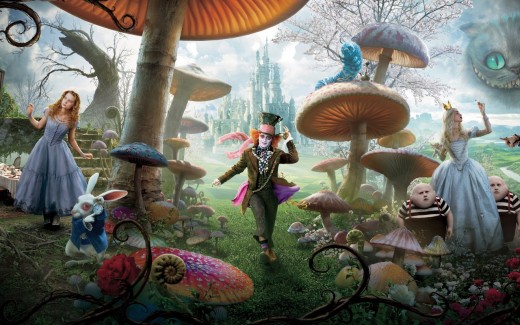
Your opinion
Your response to the drivel above is:
